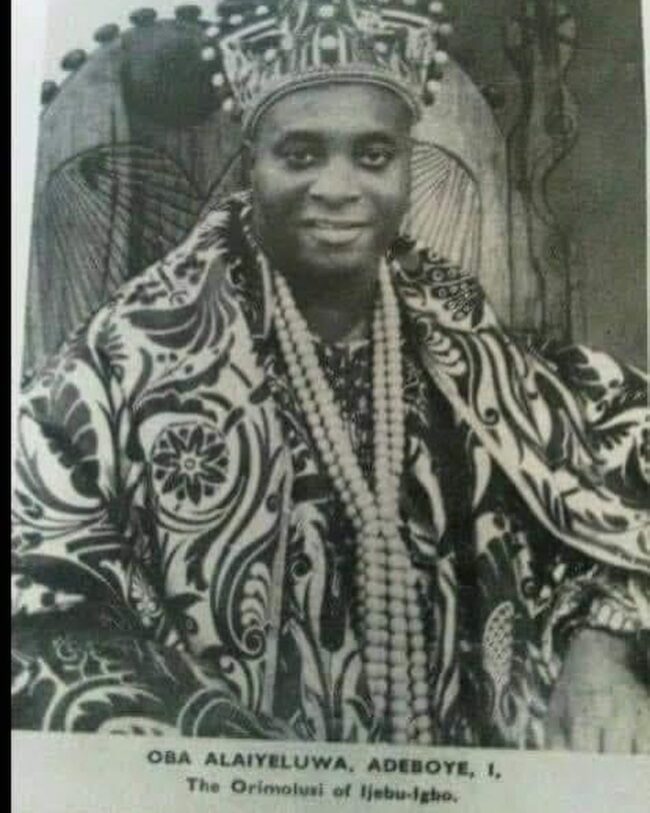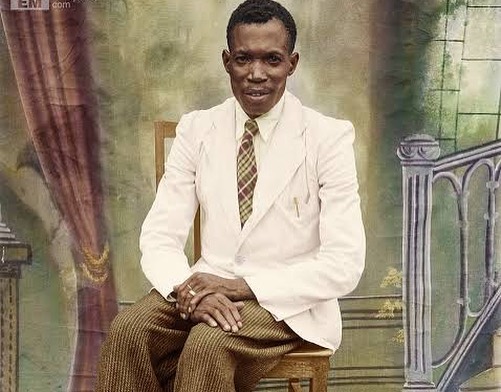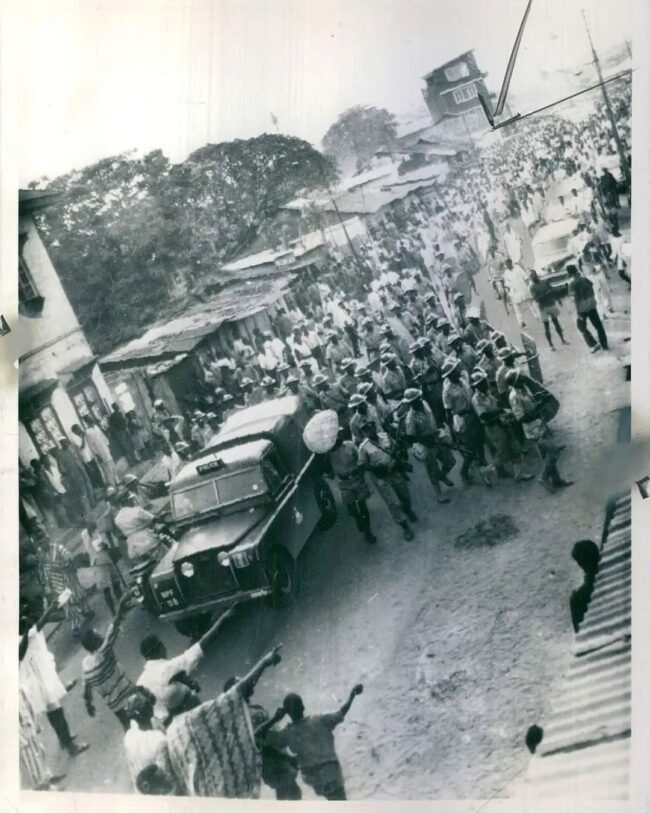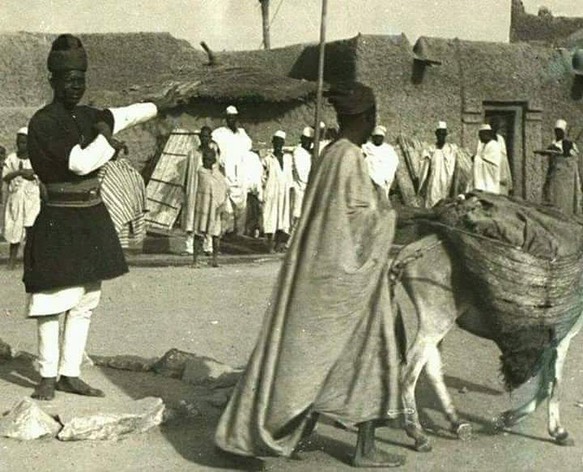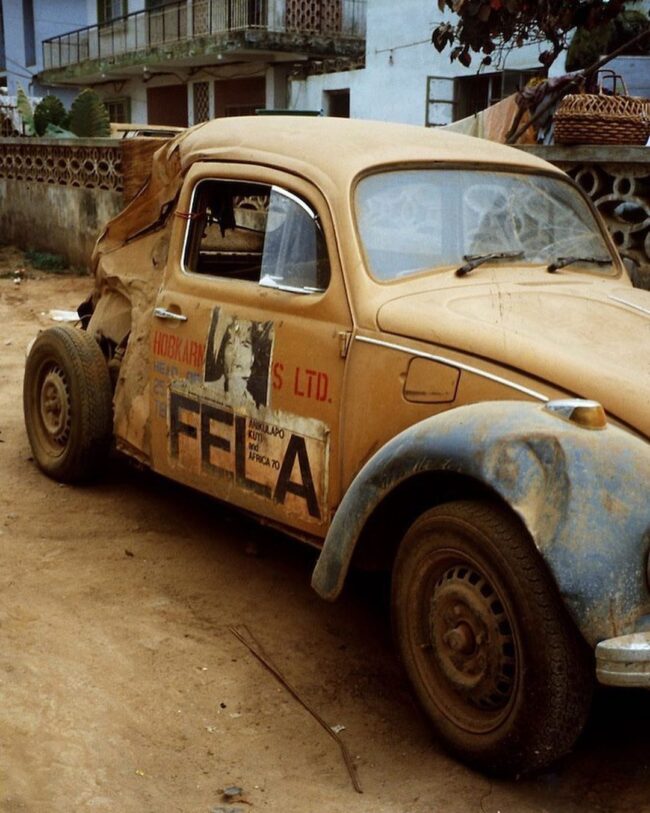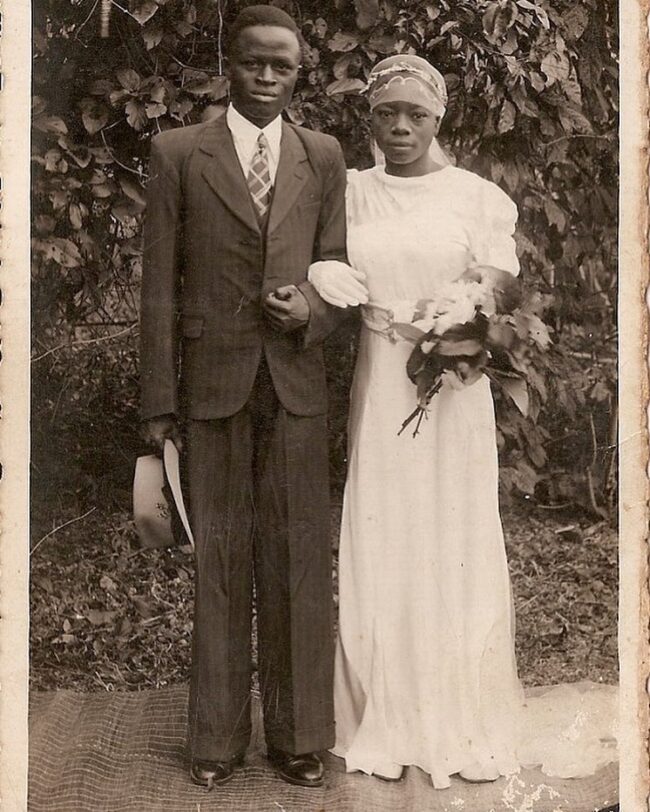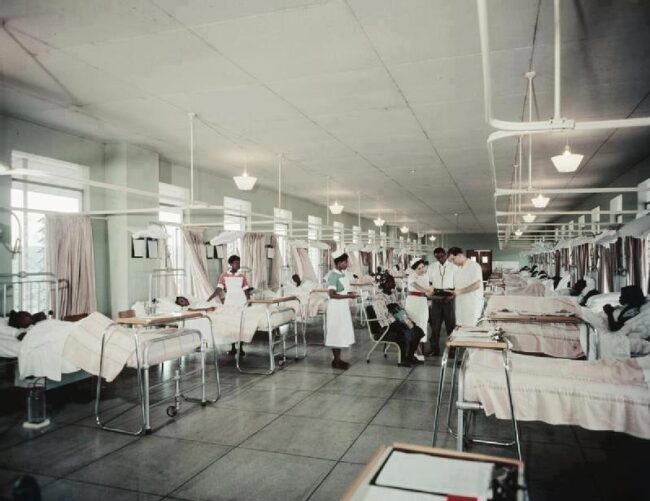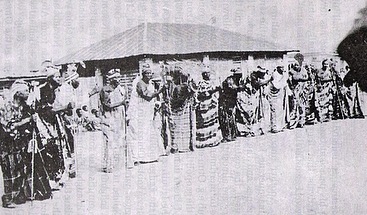Construction of the Ooni of Ife Palace
Photo shows Civil Engineer and Oni of Ife Oba Adesoji ADEREMI wearing a crown and beaded robe as he inspects the design of the new Oni Palace. They lived in a small, old house and categorically refused to build a better building until the local administration completed and paid for the drinking water supply to the population.


